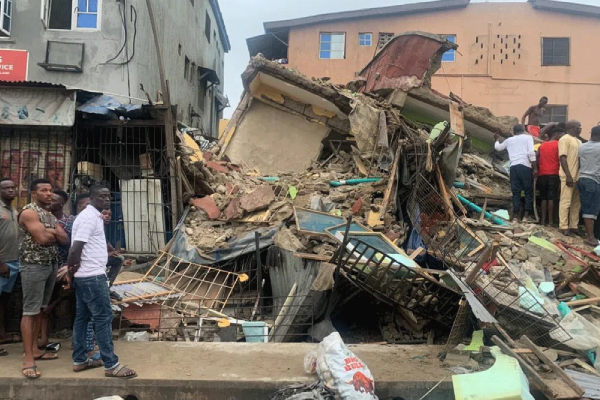The Nigerian Institute of Architects, NIA has stated that the building collapses in the country normally happen during the construction stage and is compounded by the bad economy.
Speaking to newsmen at the end of a two-day conference of the institute in Abuja, president, Nigerian Institute of Architects, Enyi Ben-Eboh said that buildings do not collapse on paper but during the critical construction stage which is handled by the structural engineers.
It exonerated itself from the ugly trend of building collapse, saying the blame should rest on other professionals in the built industry.
[wonderplugin_video iframe=”https://youtu.be/3MvLWUOsLm0″ lightbox=0 lightboxsize=1 lightboxwidth=960 lightboxheight=540 autoopen=0 autoopendelay=0 autoclose=0 lightboxtitle=”” lightboxgroup=”” lightboxshownavigation=0 showimage=”” lightboxoptions=”” videowidth=600 videoheight=400 keepaspectratio=1 autoplay=0 loop=0 videocss=”position:relative;display:block;background-color:#000;overflow:hidden;max-width:100%;margin:0 auto;” playbutton=”https://www.tvcnews.tv/wp-content/plugins/wonderplugin-video-embed/engine/playvideo-64-64-0.png”]
“What we regularly say is that buildings do not collapse on paper. A lot of times these buildings look perfect on paper. But the critical part of the building collapse comes during the construction stage. This problem has been further compounded by the economy. Of course you know that once there is any lull in the economy the building industry is the first that suffers. The people who will ordinarily want to engage in house of their own will naturally take the back seat and attend to their subsistence matters- food, shelter, clothes, school fees— those are the subsistence issues a lot of households will be concerned about. But you discover a lot of people who have some money and to engage in building construction will want to cut a lot of corners. And so, the first aspect that suffers when people try to cut corners is that you don’t use the right people to build your house,” he said.
The NIA also said shortcuts, lack of due diligence, and ineffectual regulation are the primary reasons behind the frequency of building collapses in Lagos.
“It’s unfortunate that the Lagos area seems to be leading in terms of how frequently buildings collapse. This is not unconnected to the fact that Lagos is a very densely populated area and the demand for land is very high. So, people in a bid to make money cut a lot of corners.
“Now, within the Industry there are about five or six professional groups that deal with the process of erecting the building. Not all of them may be relevant to everybody but there are about two or three that are very very important in the process”, Eboh added





